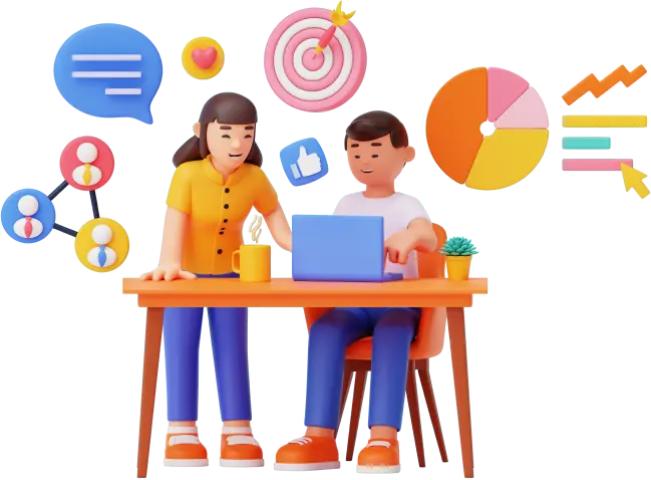Marketing services encompass a wide range of activities and strategies aimed at promoting products services, or brands to target audiences with the goal of driving sales, increasing brand awareness, and fostering customer loyalty. These services can be offered by specialized marketing agencies, consultants, or in-house marketing teams. Here’s a comprehensive overview of what marketing services typically involve:
Key Components of Marketing Services
1. Market Research and Analysis
- Market Research: Gathering data about market trends, customer preferences, and competitive landscape.
- Customer Segmentation: Dividing the target market into distinct groups based on demographics, behavior, or other criteria.
- SWOT Analysis: Identifying strengths, weaknesses, opportunities, and threats related to the business or product.
2. Branding and Positioning
- Brand Strategy: Developing a clear brand identity, including mission, vision, and values.
- Brand Positioning: Crafting a unique value proposition and positioning the brand in the market to differentiate it from competitors.
- Brand Development: Creating elements like logos, taglines, and brand guidelines to ensure consistent messaging.
3. Digital Marketing
- Search Engine Optimization (SEO): Optimizing website content to improve search engine rankings and drive organic traffic.
- Content Marketing: Creating and distributing valuable content to attract and engage the target audience.
- Social Media Marketing: Promoting products or services on social media platforms like Facebook, Instagram, Twitter, LinkedIn, etc.
- Email Marketing: Sending targeted email campaigns to nurture leads and retain customers.
- Pay-Per-Click (PPC) Advertising: Running paid ad campaigns on platforms like Google Ads, Bing Ads, and social media networks.
- Influencer Marketing: Collaborating with influencers to promote products or services to their followers.
4. Traditional Marketing
- Print Advertising: Placing ads in newspapers, magazines, brochures, and other print media.
- Broadcast Advertising: Running commercials on television and radio.
- Outdoor Advertising: Using billboards, transit ads, and other outdoor media to reach a broad audience.
- Direct Mail: Sending physical mailers, catalogs, or promotional materials to potential customers.
5. Public Relations (PR)
- Media Relations: Building relationships with journalists and media outlets to secure press coverage.
- Press Releases: Writing and distributing press releases to announce news, product launches, or events.
- Crisis Management: Managing communication and public perception during crises or negative events.
6. Event Marketing
- Event Planning: Organizing events such as trade shows, conferences, webinars, and product launches.
- Sponsorships: Partnering with events or organizations to increase brand visibility.
- Experiential Marketing: Creating immersive experiences that engage customers and create memorable brand interactions.

















